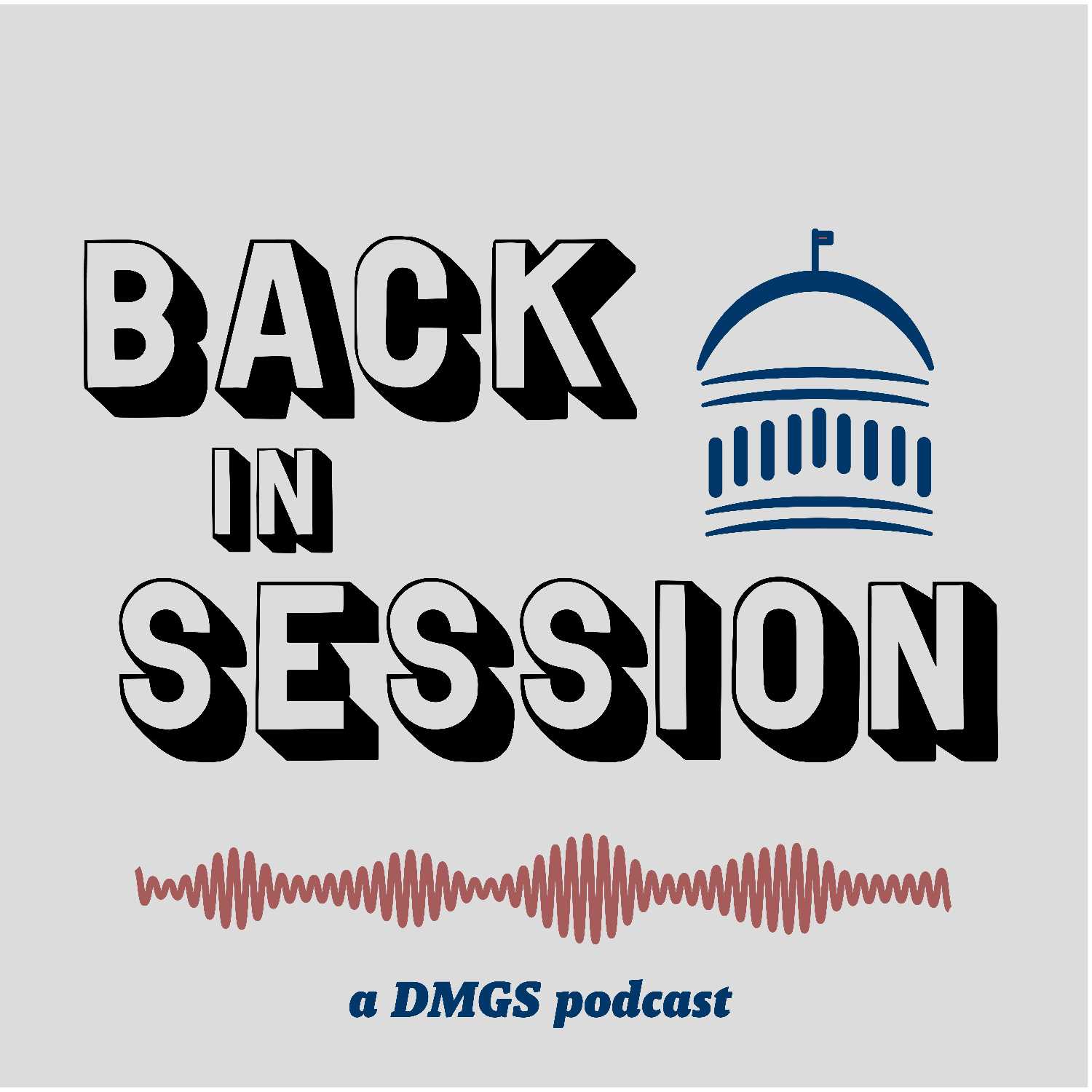
On December 1, 2023, Alabama state lawmakers began pre-file legislation for the 2024 session, when their bills will receive an official introduction. In total, 35 bills have been pre-filed (30 in the House, 5 in the Senate) ranging from jury procedure to name, image, and likeness deals for high school athletes to face masking requirements. The legislature will convene for its annual session on February 5, 2024.
Mandate Star-Spangled Banner in Public Schools
Senator Gerald Allen (R) prefiled SB2, which would mandate that all state K–12 public schools broadcast or perform the first stanza of The Star-Spangled Banner at least once a week during school hours. The bill asserts that all students must understand the history and inspiration of the anthem to promote patriotism. This bill would amend the Constitution of Alabama of 2022 and require local boards of education to adopt this policy. The amendment would only become valid if approved by a majority of qualified electors. The bill also provides that the only versions of the song that can be broadcast or performed are those archived on the Library of Congress’s website. The bill will be read on February 5, 2024, and was in the Education Policy Committee.
Ebony Alert System
Representative Juandalynn Givan (D) prefiled HB5 to create an Ebony Alert System. This system would be used to send out alerts to assist in the recovery of missing Black youth and young women. This notification system, similar to an Amber Alert but with a maximum age of 25 rather than 17, would be used under specific circumstances. Information about the missing individual would be disseminated using cable, radio, television, and satellite. Law enforcement could request an Ebony Alert if a person between the ages of 12 and 25 is reported missing and they have a mental disability, were possibly abducted, may be in physical danger, or may be subject to trafficking, among other factors they must consider, or they believe it would be an effective tool in the recovery of the individual. The bill will be read on February 5, 2024, and was in the Public Safety & Emergencies Committee.
Background Checks for Those with Access to Apartment Buildings
Representative Juandalynn Givan (D) prefiled HB7, which would require background checks for all employees and contractors with access to any apartment building dwellings. The owner or operator of the apartment would order these background checks. They would include criminal records and sex offender registries in all 50 states. This bill would also require apartment owners and operators to keep a log of all apartment keys issued and replace the lock on an apartment door if one of the keys becomes unaccounted for. The bill will be read on February 5, 2024, and was in the Commerce and Small Business Committee.
Prohibiting Face-mask Requirements by Government Entities
Representative Brock Colvin (R) prefiled HB9, which would prohibit governmental entities, such as municipalities or schools, and the Alabama State Health Department from requiring face masking to control the spread of COVID-19 or other communicable diseases. This bill outlines exceptions for medical facilities licensed by the Department of Public Health and detention centers. The bill will be read on February 5, 2024, and was in the Health Committee.
Occupational Licensing Changes
Representative Chris Pringle (R) pre-filed HB11, which would prohibit any state agency or occupational licensing board from entering into an agreement where an employee would be prevented from publicly disclosing malfeasance, misfeasance, or criminal activity by another employee of either organization. Currently, no laws prohibit these types of agreements at a state agency, any department, bureau, or public university, for example, or any occupational licensing board, a commission authorized by the state to license or certify individuals in a profession. These disclosures can only be made by an employee about wrongdoing that occurred while they were employed or served at the respective organization. The bill will be read on February 5, 2024, and was in the State Government Committee.
Body Weight and Size Discrimination
Representative Juandalynn Givan (D) prefiled HB18, which relates to body weight and size discrimination. This bill would make it illegal to deny an individual the full and equal enjoyment of public accommodations, like restaurants and movie theaters, due to their weight. Further, employment discrimination based on weight, meaning an individual’s weight was a motivating factor in their denial of employment, would also become illegal. This bill also states that employment discrimination because of weight would be a cause for legal action against the employee, where the individual may be awarded the job by way of employer compliance or compensation in the amount of lost wages. The bill will be read on February 5, 2024, and was in the Discrimination & Civil Protections Committee.
Genetic Testing and Data Privacy
Representative Chip Brown (R) prefiled HB21, which relates to the data that genetic testing companies collect. This bill would be the first Alabama law about the privacy of this type of consumer data. It states that genetic testing companies would need express consent from an individual to retain, use, and share their data with other entities. The consent must be either written or electronic, and the specific purpose for which the data is used must be both prominent and clear to the consumer. The company must receive this consent each time a third party uses the data. Further, the consumer will have the ability to access and request the destruction of the data the company has on them. A genetic testing company that violates this law would receive a civil penalty that the Attorney General would enforce. The bill will be read on February 5, 2024, and was in the Consumer Protection Committee.
Absentee Voting Changes
Representative Kenyatté Hassell (D) prefiled HB23, which would amend The Code of Alabama 1975 concerning absentee voting affidavits. When a voter chooses to vote absentee in Alabama, they must fill out an application requesting the ballot and then submit the absentee ballot with an affidavit. For all documents, the voter must choose an excuse for why they are voting absentee. Reasons for voting absentee include an absence from the country on election day, physical incapacitation, incarceration, and working during the period. This bill would change this procedure by not including the reason for voting absentee on the affidavit. The bill will be read on February 5, 2024, and was in the Elections, Voting, & Campaigns Committee.
NIL Legislation
Representative Jeremy Gray (D) prefiled HB25 regarding high school athletes’ rights to their name, image, and likeness (NIL). This bill is significant to Gray; he played college football for Southern Methodist University and spent much of his early career working for NFL teams such as the Buffalo Bills, Minnesota Vikings, and Philadelphia Eagles before being elected to the Alabama legislature. This bill would allow student-athletes in Alabama to receive compensation for their NIL and outlines the requirements for such compensation. Compensation for athletes could not be contingent on a specific achievement or performance, be provided by a school, and be done without professional guidance to the athlete. Further, the athlete could not endorse their school in the deals and would be required to notify the school’s athletic director of the deal at least seven days in advance of its completion. The bill will be read on February 5, 2024, and was in the State Government Committee.
Sentencing Protocol for Capital Murder Cases
Representative Chris England (D) prefiled HB27, which would change the sentencing protocol for capital murder cases for juries that may impose the death penalty. In 2017, provisions in the Alabama Criminal Code § 13A-5-47 prohibited a court from overruling a jury’s verdict. This change specified that the jury’s verdict was no longer advisory but binding in these cases. These provisions, however, were not retroactive for those who had been sentenced to death in capital murder cases prior to 2017, meaning they could not appeal their sentence. This bill seeks to change that by repealing that part of the Alabama Criminal Code and stating that all defendants who were tried before June 1, 2024, and received a sentence by a judge that differed from the one provided by the jury will have the opportunity to appeal to the sentencing court for free. The bill will be read on February 5, 2024, and was in the Judiciary Committee.
Latest News
As legislative sessions kick off across the country, advocacy professionals must navigate diverse political landscapes, shifting priorities, and fast-moving policy developments. In this episode of Back in Session, hosts Ryan Stevens and Ryan DeMara sit [...]
Photo credit: iStock.com/hapabapa As the year draws to a close, state legislatures across the country are gearing up for their upcoming sessions in 2025. A critical aspect of this preparation is state legislative prefiling, a [...]
Photo credit: iStock.com/zrfphoto In the State of Washington, members of the General Assembly can pre-file legislation in the month before a legislative session begins. Beginning on December 4, 2023, lawmakers began pre-filing dozens of bills. [...]
Photo credit: iStock.com/yevtony Last week, the National Governors Association (NGA) elected Utah Governor Spencer Cox (R) as its new Chair and Colorado Governor Jared Polis (D) as NGA Vice Chair. Cox succeeds New Jersey Governor [...]






Stay In Touch